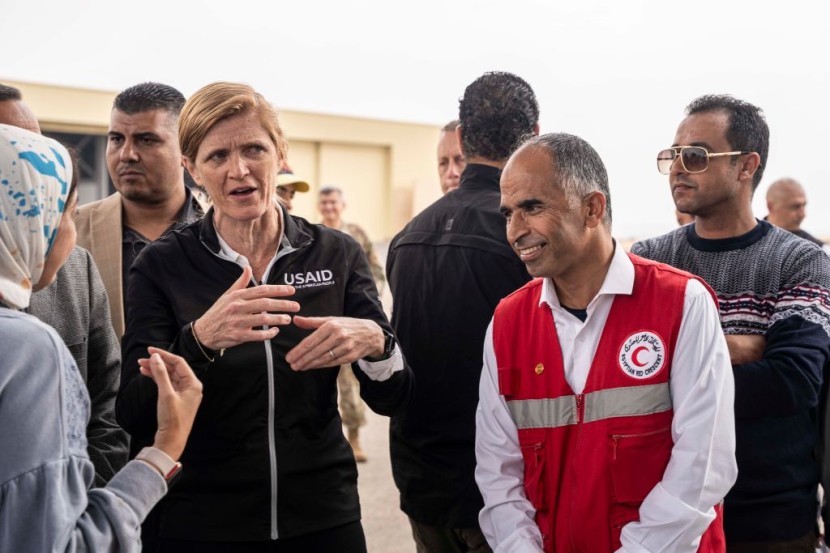
For the first time, a U.S. official has said that the ongoing food crisis in Gaza has risen to a full-on famine.
Samantha Power, the director of the U.S. Agency for International Development, became the first senior American government official to say that famine has struck northern Gaza, during a Congressional hearing on Wednesday.
Power's assessment came in response to a question from Texas Representative Joaquin Castro, who noted that there were news reports claiming that USAID had informed the National Security Council that people within the besieged Gaza Strip were facing famine.
"Do you think it is plausible or likely that parts of Gaza, and in particular northern Gaza, are already experiencing famine?" Castro asked.
In response, Powers explained that USAID's assessment of the situation was derived from an analysis by the Integrated Food Security Phase Classification initiative, which she said uses sound methodology.
"That is their assessment, and we believe that assessment is credible," she told Castro.
"So famine is already occurring there?" he asked.
"Yes," Power confirmed.
In the six months since the Oct. 7 Hamas attacks on Israel that killed more than 1,000 people, the situation inside Gaza has grown increasingly dire. At least 33,037 Palestinians have been killed, including more than 13,000 children. People in northern Gaza are subsisting on an average of 245 calories per day, according to Oxfam International. The region is also considered the most dangerous place in the world for journalists and aid workers.
Power also disputed Israel's allegations that Hamas was stealing aid from Gazan civilians.
"We are not seeing Hamas dictating where food is provided," she told Congress. "I can assure you that if the government of Israel saw Hamas doing that we would be hearing about it."
In recent weeks, even long-time Israel supporters in Washington have become critical of Prime Minister Benjamin Netanyahu after an Israeli Defense Forces airstrike killed seven World Central Kitchen aid workers, including one American citizen.
Other aid groups within the region have been forced to pull out of Gaza or decrease their operations due to pervasive security threats. American Near East Refugee Aid suspended their operations in Gaza, after more than half a century of work in the region and the United Nations temporarily stopped moving aid due to security concerns.
"Humanitarian aid organizations are unable to carry out their work safely," the International Committee of the Red Cross said last week.
During her testimony, Power urged Congress to "press our Israeli partners to actually follow through with the commitments they have made" to allow humanitarian aid inside Gaza.
"In northern Gaza, the rate of malnutrition prior to Oct. 7 was almost zero, and it is now one in three kids," she said.
"In terms of actual severe acute malnutrition for under-5s, that rate was 16 percent in January and became 30 percent in February. We're awaiting the March numbers, but we expect it to continue."
© 2025 HNGN, All rights reserved. Do not reproduce without permission.








